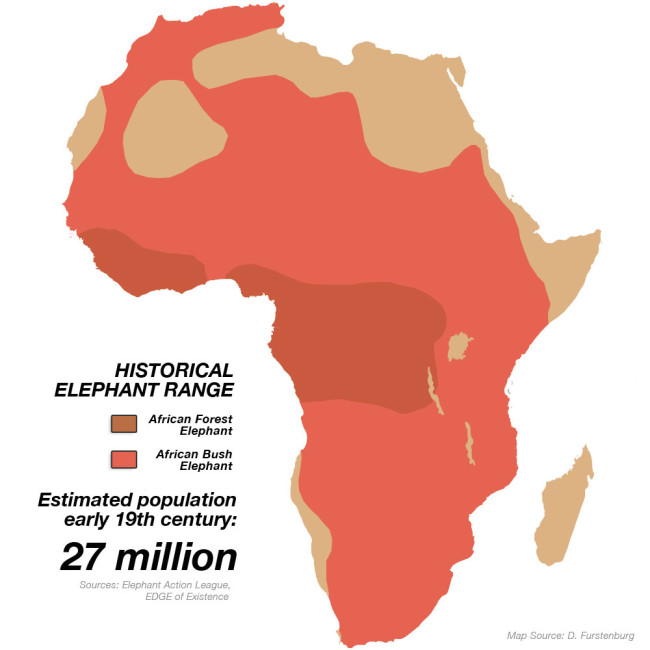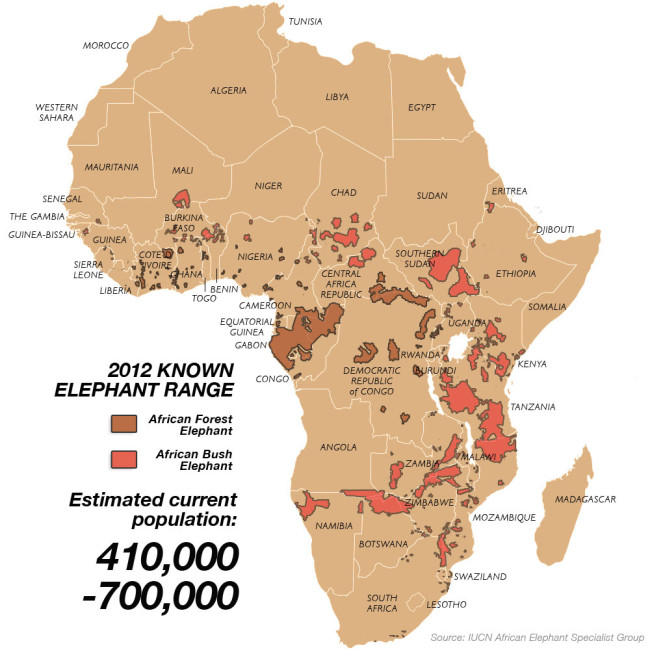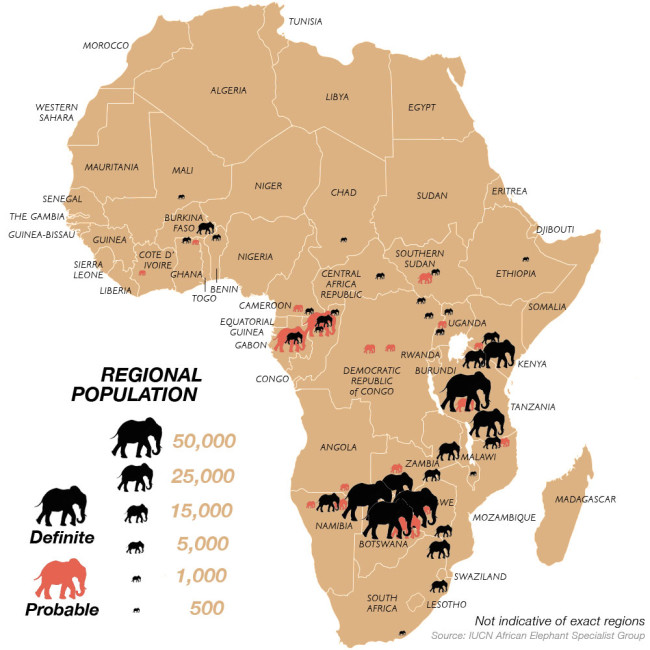by Jane Edge, 17 April 2015
Over the past three years, NGOs have launched multi-million dollar campaigns to highlight the plight of Africa’s elephants and raise funds to halt their slaughter. Yet elephants remain under siege, with some 100,000 elephants lost to poaching in that time alone. Jane Edge navigates the philanthropic world and highlights its wastage, as well as its successes in protecting Africa’s giants.
In September 2013 a high-profile announcement was made in New York about a bold Clinton Global Initiative, bringing together NGOs, governments and concerned citizens to stop the slaughter of Africa’s elephants. Making international headlines, the Initiative pledged $80 million over three years to counteract the elephant crisis with a three-pronged strategy to “stop the slaughter, stop the trafficking, and stop the demand”. However, it emerged that of the $80 million in pledged funds, $78 million comprised the already-funded budgets of over a dozen conservation organisations working in Africa. There was no funding from the Clinton Foundation; indeed a significant portion was European Union funding that had long been committed to protected areas in Africa. The impact was all in the packaging.
Such is the confusing world of wildlife conservation where initiatives to save iconic species compete in a game of recognition and power, often completely missing the conservation goal. With hundreds of NGOs proclaiming to protect elephants, how do philanthropists decide who to support? The answer is not easy, and the givers themselves are often motivated by personal goals, simply wishing to feel virtuous with an easy click and credit-card swipe entry on a website. NGO websites encourage this approach: for a few dollars, you can supposedly sponsor an orphaned elephant or equip a park ranger. But how much of the money really goes there?
The status of Africa’s elephants
Available research data indicates a population of +- 550,000, but some scientists swayed by the poaching onslaught claim the number is as low as 250,000. Media headlines shout about an apocalypse; they predict that Africa’s elephants will be extinct in 20 years while ignoring the fact that elephants breed at 5% per annum – helping to offset poaching statistics. NGOs benefit from alarmist talk and every poaching outrage ensures an influx of funds into their coffers. But responsible conservation should present considered facts and opinion; genuine action and accountability. Africa’s elephants may not be on their way to extinction, but in many regions they are being lost with breathtaking speed. West Africa is almost devoid of elephants and a huge swathe of central Africa has lost its savannah herds. Tanzania and Mozambique are the current elephant killing fields, and central Africa’s forests are an unseen frontline where the future of the forest elephant is at stake. These are real threats and an alarmed Western world is responding with shock, anger and unprecedented amounts of funding. Governments, foundations and individuals are desperate to help but are bamboozled by the plethora of headlines and funding options.



If donors wants to contribute effectively, the role of different NGOs needs to be understood, their literature examined and quantifiable results sought. Donors also need to understand the relevance of data – if poaching arrests increase, have anti-poaching efforts become more effective or has poaching pressure increased? Are arrests translating to prosecutions or to bribed releases? If more rangers are deployed, are they being effective or actually contributing to the problem by colluding with poachers? The only real measure of success is an increase in population numbers or the slowing of a downward trend – but accurate statistics have been difficult to establish.


